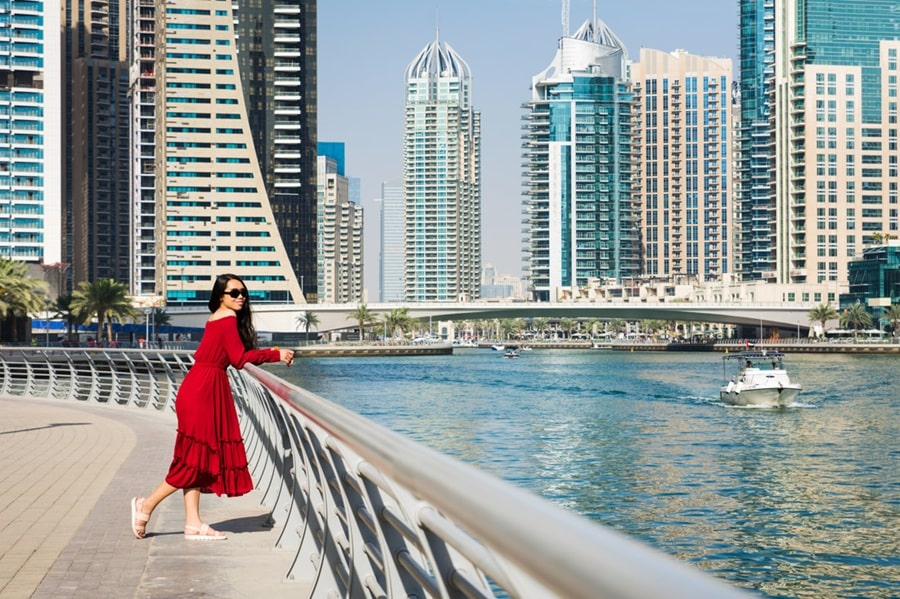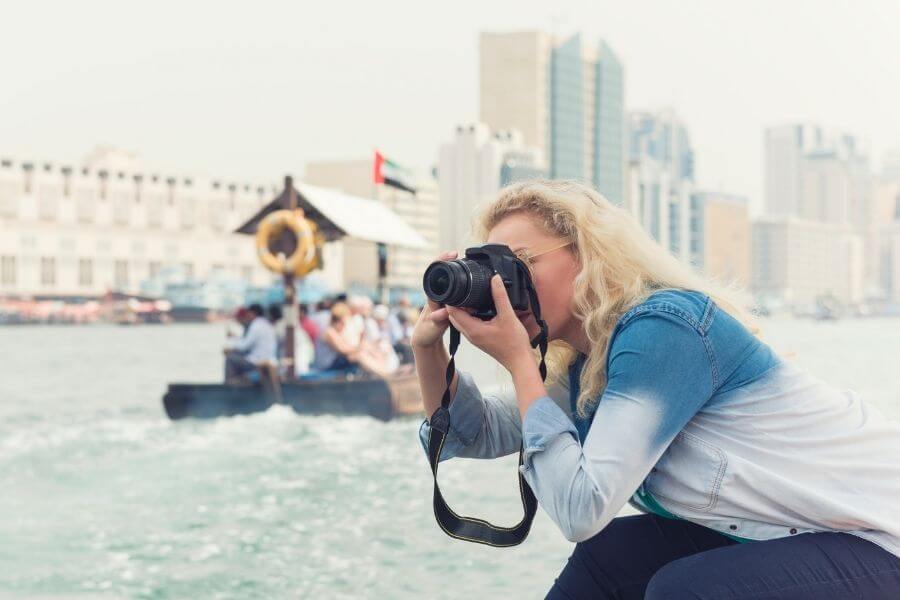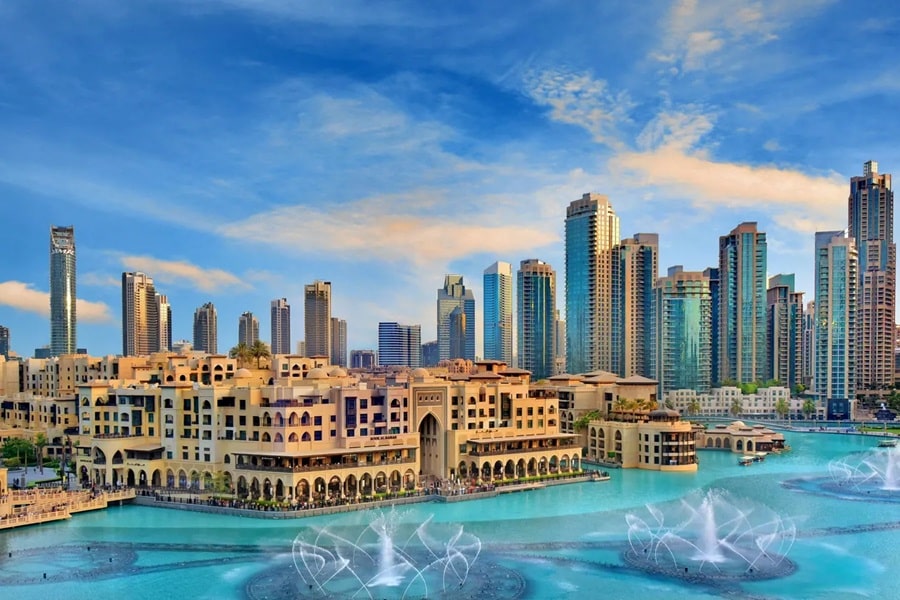Dubai is a city that dazzles with contrasts. On one side you’ll see futuristic skyscrapers like the Burj Khalifa piercing the sky, while on the other side you can stroll through traditional souks where the scent of spices and oud perfumes fills the air. Luxury shopping malls stand a short distance away from ancient mosques, and the city thrives on this blend of modern opulence and Islamic heritage. For travelers, this unique combination makes Dubai one of the most fascinating destinations in the world. But while the city is welcoming and cosmopolitan, it is still part of a Muslim country, and understanding the do’s and don’ts of local culture is essential for a smooth and enjoyable trip.
Many first-time visitors arrive in Dubai thinking it’s just another global metropolis where anything goes. After all, the nightlife is vibrant, hotels are glamorous, and international communities make up the majority of the population. Yet beneath this cosmopolitan surface lies a society rooted in traditions, respect, and religious values. Knowing how to behave in line with local expectations not only saves you from potential trouble but also helps you gain respect from Emiratis and residents who are proud of their culture.
This guide is designed to walk you through the essentials of travel etiquette in Dubai, highlighting what you should do to blend in respectfully and what you must avoid at all costs. Think of it less as a list of restrictions and more as a cultural compass that ensures your trip is memorable for all the right reasons.
Understanding the Culture of Dubai
One of the most important things to realize about Dubai is that it is truly a global hub. With over 80% of its population made up of expatriates, the city feels international in character. English is widely spoken, global cuisines are easy to find, and visitors from every corner of the world mingle on its streets. It would be easy to assume that this diversity translates to complete freedom in behavior. However, cultural life in Dubai is still deeply influenced by Islam, and many local customs reflect values of modesty, respect, and public decency.
Daily life in Dubai is punctuated by the call to prayer, which you’ll hear echoing across the city five times a day. Emiratis wear their traditional clothing with pride—men in their white kanduras and women in elegant abayas. While foreigners are not expected to adopt these traditions, showing sensitivity to them is highly valued. You’ll find that Dubai is more relaxed than some neighboring emirates, but rules about behavior, modesty, and respect are still important.
The key to enjoying Dubai is simple: be respectful. As long as you show awareness of cultural differences and avoid behavior that could be seen as offensive, you’ll be welcomed warmly. Emiratis are proud of their heritage and delighted to share it with curious travelers, but they also expect visitors to act responsibly.
Do’s in Dubai: How to Experience the City with Respect
While Dubai offers every modern comfort, the best way to enjoy it is by blending in with local expectations. Let’s take a closer look at the things you should do during your trip.
Dress Respectfully in Dubai

Clothing is often the first cultural difference travelers encounter. You don’t need to cover your head or wear traditional garments as a visitor, but modesty is appreciated in public places. At resorts, hotels, and private beaches, you can wear swimwear, bikinis, or shorts without issue. But once you step into public areas like malls, souks, or government buildings, more conservative attire is expected. Women should avoid revealing outfits such as miniskirts or crop tops, and men should not walk around shirtless or in very short shorts.
Carrying a light scarf or shawl is a great idea, both for modesty and for comfort in heavily air-conditioned malls. If you plan to visit a mosque, stricter dress codes apply—long sleeves, covered legs, and for women, a headscarf. Most tourist mosques will provide abayas and scarves at the entrance, so you don’t need to worry if you aren’t prepared.
Respecting the dress code doesn’t just prevent awkward situations; it’s also a way of showing locals that you value their cultural norms.
- Swimwear is fine on beaches and pools but not in city streets or malls.
- Cover shoulders and knees in public areas.
- Women visiting mosques should wear long clothing and cover their hair.
- Men should avoid going shirtless in public.
Show Politeness and Courtesy
Politeness is a universal language in Dubai. Whether you’re dealing with hotel staff, taxi drivers, or local residents, a courteous attitude will be remembered. Greetings such as “Salam alaykum” (peace be upon you) are appreciated, though a simple “hello” is always acceptable. Handshakes are common between men, but when meeting women, wait for them to initiate—it’s polite not to assume physical contact.
You’ll notice that locals always use their right hand for eating, greeting, or giving items. The left hand is traditionally reserved for personal hygiene, so avoid using it when interacting with people. Keeping your voice calm and avoiding confrontations is also crucial. Shouting or arguing in public is frowned upon and can even attract police attention if it escalates.
Being genuinely curious about local traditions is another way to connect. Asking questions about Emirati food, customs, or festivals is usually welcomed. The people of Dubai are proud of their culture, and a respectful conversation can open doors to memorable experiences.
Respect Religion and Ramadan in Dubai

Religion plays an important role in daily life. When you hear the call to prayer, simply be respectful and avoid disturbing anyone who may be praying. During the holy month of Ramadan, sensitivity becomes even more important. Muslims fast from sunrise to sunset, and while non-Muslims are not expected to join, eating, drinking, or smoking in public during the day is discouraged.
Restaurants and cafes still serve food to non-Muslims, but it’s considerate to eat indoors or discreetly. Once the sun sets, you’ll be able to enjoy Iftar, the meal that breaks the fast. Many hotels and cultural centers host lavish Iftar buffets that welcome tourists, offering a wonderful opportunity to engage with local traditions.
Even outside of Ramadan, it’s useful to remember that pork is restricted in most places and alcohol is only served in licensed venues. Understanding these practices shows respect for the culture and ensures you won’t be caught off guard.
- Do not eat, drink, or smoke in public during daylight hours of Ramadan.
- Try an Iftar meal in the evening
- Learn and respect halal dietary laws.
Use Public Transport Responsibly

Dubai’s public transport system is modern, clean, and affordable. The Metro is efficient and a great way to explore the city, but it comes with strict rules. Eating, drinking, or even chewing gum is prohibited, and fines are enforced. There are also special carriages reserved for women and children, and men who enter them may face penalties.
Taxis are plentiful and relatively inexpensive. Always wear a seatbelt, and be prepared with a map or app to guide your driver—addresses can sometimes be confusing. If you decide to rent a car, remember that traffic cameras are everywhere, and driving under the influence is met with zero tolerance.
Respecting these rules not only avoids trouble but also contributes to the orderly and welcoming atmosphere Dubai is known for.
- No eating, drinking, or chewing gum on the Metro.
- Respect the women and children only
- Buckle up in taxis and cars.
- Never make rude gestures – they are punishable by law.
Engage with Local Customs
Beyond avoiding mistakes, embracing Emirati traditions can make your trip more rewarding. If you’re invited into someone’s home or a majlis (sitting area), remove your shoes at the door. Accepting Arabic coffee or tea is a sign of respect, and learning little customs like shaking the small cup to signal you’ve had enough will delight your hosts.
When shopping in souks, bargaining is part of the experience. Negotiate politely, and always with a smile. Learning a few Arabic words such as “Shukran” (thank you) can also go a long way. Dubai’s culture is built on hospitality, and showing curiosity and gratitude makes you stand out as a considerate traveler.
Don’ts in Dubai: Mistakes to Avoid
While there is much you should do in Dubai, there are also behaviors that must be avoided to stay out of trouble. Some are cultural taboos, while others are strictly enforced laws.
Public Displays of Affection
Couples should avoid kissing or embracing in public. Holding hands is generally tolerated, but more intimate gestures are considered indecent. Although Dubai is modern, public affection remains a sensitive issue.
Drinking and Public Intoxication in Dubai
Alcohol is widely available in licensed hotels, restaurants, and bars. However, drinking in public or being visibly drunk outside these venues is illegal. Driving under the influence is one of the most serious offenses and can result in imprisonment and deportation.
Photography Without Permission in Dubai

Dubai is incredibly photogenic, but you must be cautious when taking pictures of people. Emirati women, in particular, should never be photographed without consent, and government buildings, military areas, and airports are strictly off-limits. Posting unauthorized images online can also land you in legal trouble under privacy laws.
Disrespecting Religion or Laws
Criticism of Islam, the government, or the royal family is strictly prohibited. Even joking about these topics can cause serious problems. Using obscene language, making offensive gestures, or engaging in political debates in public should also be avoided.
Drug laws are another area with zero tolerance. Even small amounts of substances like cannabis can lead to long prison sentences. Some prescription medicines common in other countries are banned in the UAE, so always check regulations before traveling with medication.
Ignoring Warnings
The fact that some tourists bend the rules doesn’t make it safe to follow. Enforcement can be unpredictable, and all it takes is one complaint for authorities to act. If a security guard or local resident asks you to adjust your behavior, comply politely without argument.
Quick Reference Table
| Do’s | Don’ts |
| Dress modestly in public | Wear revealing clothes in malls or markets |
| Greet politely and use right hand | Make rude gestures or swear |
| Respect Ramadan and prayer times | Eat or drink in public during Ramadan |
| Use taxis and Metro responsibly | Drive after drinking alcohol |
| Embrace customs and accept hospitality | Show PDA like kissing or hugging |
| Ask permission before photos | Photograph people or government sites |
Tips for Different Types of Travelers
First-Time Visitors
If it’s your first time in Dubai, don’t be nervous. The city is designed to welcome international guests. Plan some cultural activities, like visiting the Jumeirah Mosque or exploring Al Fahidi Historical District, to balance the modern attractions with authentic heritage.
Families
Dubai is one of the safest and most family-friendly destinations in the world. Waterparks, aquariums, and desert adventures are perfect for kids. Just remember that older children and teens should also dress modestly in public.
Business Travelers
Business culture in Dubai combines professionalism with tradition. Formal dress is expected, punctuality is valued, and hospitality is central. Be prepared for tea or coffee at meetings, and remember that building relationships often comes before closing deals.
Common Misconceptions
Many outsiders assume Dubai is either extremely strict or completely permissive. In reality, it is a balance: tolerant and open, yet anchored in tradition. Women travelers are safe and respected, culture is everywhere beyond the skyscrapers, and not everything costs a fortune. The city offers a wide spectrum of experiences, from luxury shopping to budget-friendly markets, and from beach clubs to cultural centers.
Conclusion
Dubai’s magic lies in its ability to merge the modern and the traditional into one unforgettable destination. By following the do’s and avoiding the don’ts, you not only keep yourself out of trouble but also demonstrate respect for a culture that values hospitality and courtesy.
Dress modestly in public spaces, show politeness in your interactions, respect religious practices—especially during Ramadan—and avoid risky behavior such as PDA, public intoxication, or unauthorized photography. Think of these not as restrictions, but as keys to unlocking a richer and smoother travel experience.
Dubai is ready to welcome you, whether you’re coming as a solo traveler, with your family, or for business. Respect its culture, and you’ll discover a city that is not just about luxury but also about tradition, warmth, and genuine hospitality. As locals would say: Ma’a as-salama—go in peace, and may your journey be unforgettable.
